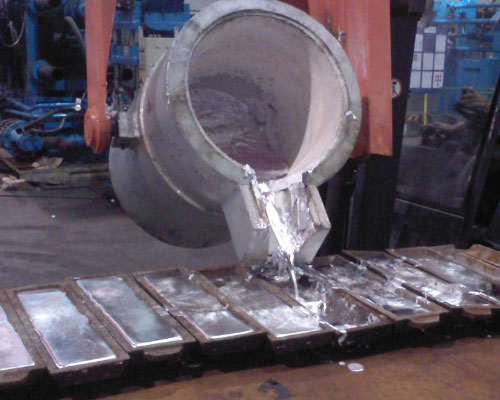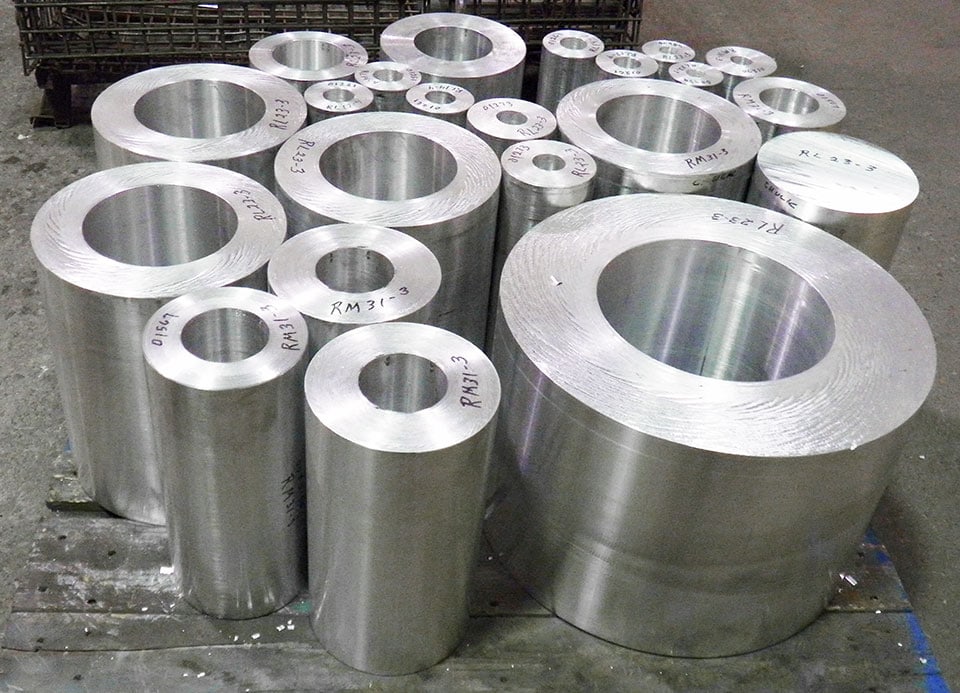Comprehending the Function of Aluminum Foundry in Creating High-Quality Steel Products
Aluminum factories are necessary in the production of high-grade steel items. They utilize various casting techniques, such as sand and die casting, to attain accuracy and resilience. With rigorous quality assurance measures in position, these facilities ensure that their products meet sector criteria. As markets progress, the role of Aluminum factories remains to adapt. This elevates concerns concerning future developments and sustainability techniques that might redefine their impact.
The Aluminum Casting Process: Techniques and Developments
The Aluminum casting process has progressed significantly, integrating numerous strategies and innovations that improve efficiency and product top quality. Typically, methods such as sand spreading and die spreading were primary; nonetheless, advancements have presented processes like investment casting and low-pressure die casting. These developments enable manufacturers to accomplish elaborate layouts and tighter tolerances, minimizing product waste and boosting total performance.
The combination of computer-aided design (CAD) and simulation software application permits for more precise modeling and screening, guaranteeing that potential concerns are recognized early in the manufacturing cycle. Metal Castings. In addition, advancements in alloy solutions lead to improved mechanical buildings and deterioration resistance
These growths not only streamline manufacturing however likewise promote sustainability by minimizing energy usage and exhausts. As the industry remains to accept brand-new innovations, the Aluminum spreading process stays a vital part in creating high-grade metal items that meet varied market needs.
Applications of Aluminum in Numerous Industries
Light weight aluminum's convenience and beneficial properties make it a useful material across numerous industries. In the automotive field, Aluminum is widely made use of for its light-weight characteristics, adding to improved fuel effectiveness and performance. The aerospace sector likewise benefits, as light weight aluminum's high strength-to-weight proportion enhances airplane design while preserving safety and security standards.
In construction, Aluminum is preferred for its toughness and resistance to deterioration, making it perfect for window frames, roof, and structural parts. The packaging industry leverages light weight aluminum's non-toxic nature and recyclability, specifically in food and beverage containers, making sure security and sustainability.
In addition, the electric market utilizes Aluminum for its outstanding conductivity in circuitry and transmission lines. The consumer products field utilizes Aluminum in items ranging from kitchen area utensils to electronics, stressing its adaptability. Aluminum plays a crucial role in boosting performance, efficiency, and sustainability across diverse applications.
Advantages of Using Aluminum Over Various Other Steels
While several metals are utilized in numerous applications, Aluminum attracts attention as a result of its special mix of buildings that use numerous benefits over various other materials. Its light-weight nature considerably decreases transport costs and energy intake, making it optimal for industries such as automobile and aerospace. Light weight aluminum's outstanding deterioration resistance improves sturdiness, prolonging the life of products and minimizing maintenance needs. In addition, it displays high thermal and electrical conductivity, making it appropriate for electrical and thermal monitoring applications.
The steel's pliability allows for complex shapes and complex styles, offering flexibility in manufacturing procedures. Light weight aluminum is 100% recyclable without loss of top quality, promoting sustainability and decreasing ecological influence. These features, incorporated with its fairly inexpensive contrasted to other steels, placement Aluminum as a favored option across various industries. Generally, the benefits of Aluminum contribute to its increasing popularity in the manufacturing of premium steel items

Quality Control Steps in Aluminum Foundries
Quality control actions play a vital duty in the Aluminum Foundry process, guaranteeing that the end products meet rigorous sector standards and client expectations. These steps usually start with material examination, where raw Aluminum is evaluated for pureness and structure. click now Once the spreading process starts, temperature control is crucial; keeping ideal molten metal temperatures avoids flaws such as porosity and contraction.
Additionally, non-destructive screening (NDT) techniques, consisting of ultrasonic and radiographic assessments, are employed to discover interior imperfections without harming the castings. Aesthetic inspections are additionally performed at numerous stages to recognize surface area flaws.
Furthermore, adherence to recognized top quality monitoring systems, such as ISO standards, is crucial for preserving consistency and traceability throughout the manufacturing process. Regular audits and staff member training on quality standards add to a total culture of quality, making sure that the products not only visit here satisfy but exceed customer assumptions in performance and resilience.
The Future of Aluminum Foundries: Patterns and Sustainability
As the Aluminum Foundry market develops, arising patterns and a concentrate on sustainability are reshaping its landscape. Enhancing demand for lightweight and durable materials in industries like automotive and aerospace drives technology in Aluminum casting techniques. Advanced modern technologies, such as synthetic intelligence and automation, are boosting manufacturing effectiveness and accuracy while reducing waste.
Sustainability is coming to be a vital issue, motivating foundries to implement eco-friendly practices, consisting of reusing Aluminum scrap and utilizing eco-friendly power resources. The shift towards circular economy principles urges foundries to lessen ecological effect while meeting consumer expectations for sustainable products.
In addition, regulatory stress are pushing the market towards cleaner operations, cultivating collaboration in between producers and ecological companies. As these fads converge, the future of Aluminum shops will likely be identified by a dedication to high quality, effectiveness, and sustainability, ensuring their importance in an affordable market.
Frequently Asked Concerns
What Are the Environmental Effects of Aluminum Foundries?
Aluminum shops add to ecological effects with energy usage, greenhouse gas emissions, and prospective air and water contamination. Additionally, mining bauxite for Aluminum can i thought about this cause environment devastation and soil destruction, affecting neighborhood environments.

How Do Factories Ensure Employee Safety During Production?
Shops apply strenuous safety and security protocols, including safety equipment, air flow systems, and routine training. They conduct risk assessments and preserve safety standards to decrease risks, making sure a safer working environment for staff members throughout the production procedure.
What Certifications Should a Light Weight Aluminum Foundry Have?
A light weight aluminum Foundry must possess accreditations such as ISO 9001 for top quality management, ISO 14001 for environmental administration, and OSHA compliance for security requirements. These qualifications guarantee adherence to sector guidelines and dedication to high quality and safety methods.
Exactly How Does Aluminum Recycling Affect Foundry Workflow?
Aluminum reusing considerably improves Foundry procedures by offering a cost-efficient raw material resource, minimizing energy consumption, and minimizing ecological effect - Aluminum Castings. It also motivates sustainable techniques, allowing shops to preserve competitiveness in a swiftly advancing market
What Are Typical Issues in Aluminum Castings?
Typical defects in Aluminum castings consist of porosity, shrinking, incorporations, and surface area blemishes. These problems can occur from improper mold style, poor putting methods, or contamination during the melting and casting processes, affecting overall item high quality.
